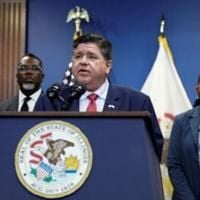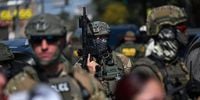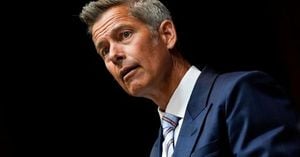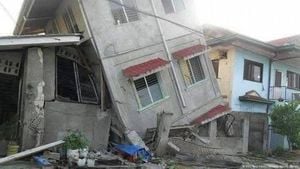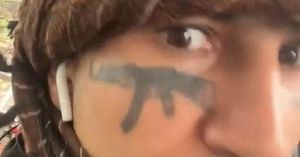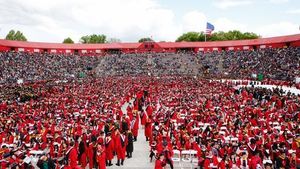Illinois Governor JB Pritzker, a leading Democratic voice and frequent critic of President Donald Trump, abruptly canceled his appearance at the Palm Beach County Democratic Party’s annual Truman-Kennedy-Johnson Gala, originally scheduled for Saturday, October 11, 2025. The cancellation, announced late Thursday, came amid a rapidly escalating standoff between state and federal authorities over the deployment of armed military troops into Chicago—a move that has sparked fierce debate and drawn national attention.
According to a report in the Chicago Tribune, Pritzker’s decision was prompted by what he and other Illinois officials have described as an unprecedented act of federal overreach. President Trump, who has made Chicago and Illinois a focal point of his efforts to target Democratic strongholds, ordered the dispatch of federal agents and attempted to deploy the National Guard to the city, moves that local leaders have repeatedly said are both unnecessary and unwelcome. The situation reached a boiling point on Wednesday, October 8, when Trump took to his social media platform to declare, “Chicago Mayor should be in jail for failing to protect Ice Officers! Governor Pritzker also!”
Howard Richman, chair of the Palm Beach County Democratic Party, released a statement expressing understanding for the governor’s absence. “Due to President Trump’s unprecedented federal overreach in sending armed military troops into the city of Chicago, Governor Pritzker made the right decision to remain at home supporting the people of Illinois,” Richman said. “We understand that the well-being of his state and his city come first. We wish him and all Americans well as this authoritarian power grab continues.”
The deployment of federal forces to Chicago is not an isolated incident but the latest in a series of confrontations between Trump and Democratic leaders in urban centers. As reported by Zeteo, sources within the administration have revealed that Trump is seriously considering invoking the Insurrection Act—a law that would allow him to expand troop deployments nationwide—signaling a potentially dramatic escalation in the use of federal power against domestic political opponents. The White House’s strategy, described by critics as an authoritarian crackdown, has been in the works for years, with Chicago long seen as a prime target.
In the weeks following the assassination of MAGA-aligned podcaster Charlie Kirk, the Trump administration accelerated its plans to bring what it calls a new “war on terror” to the streets of the Windy City. According to Zeteo’s reporting, the White House is hoping to use recent events as justification for a loud, militarized clampdown in Chicago, with the aim of intimidating and suppressing dissent in what Trump has called “liberal bastions.”
Governor Pritzker’s response to these developments has been nothing short of defiant. In a series of social media posts on October 8 and 9, he made clear that he would not be cowed by the president’s threats. “I will not back down,” Pritzker wrote, directly addressing Trump’s calls for his arrest and accusing the president of authoritarianism. “Trump is now calling for the arrest of elected representatives checking his power. What else is left on the path to full-blown authoritarianism?”
Speaking to reporters in Chicago, Pritzker did not mince words in his assessment of the president’s conduct. “Trump is a convicted felon. Think about that. (He) is threatening to jail me. I got to say, this guy’s unhinged. He’s insecure. He’s a wannabe dictator,” Pritzker said, according to the Chicago Tribune. His remarks echoed a statement he made just a day earlier at a forum in Minnesota, where, as the New York Times reported, Pritzker asserted that Trump was “out of his mind and has dementia.”
The standoff is more than a personal feud between two high-profile politicians; it is emblematic of a broader struggle over the future of American democracy and the limits of presidential power. Trump’s critics, both in Illinois and across the country, have warned that the president’s willingness to deploy federal forces against his political adversaries represents a dangerous slide toward authoritarianism. As Zeteo observed, Trump’s recent actions are “just the latest facet of his and his party’s expansive program to crush dissent and the political opposition across the nation, and to violently terrorize liberal bastions such as Chicago for crossing the president.”
For Trump and his allies, the justification for these measures lies in what they describe as a failure by local officials to maintain law and order, particularly in the wake of violent incidents involving federal officers. The president’s social media posts this week specifically accused Pritzker and Chicago Mayor Brandon Johnson of failing to protect ICE officers—an allegation that has been met with skepticism and outrage by local leaders, who argue that the true threat comes from the heavy-handed tactics of the federal government itself.
The Democratic dinner in West Palm Beach, which will proceed without Pritzker, is expected to feature speeches from members of Congress and Florida Democratic Party Chair Nikki Fried. While the governor’s absence is keenly felt, party officials have emphasized the importance of standing in solidarity with those facing what they describe as an unprecedented assault on civil liberties. “We understand that the well-being of his state and his city come first,” Richman reiterated in his statement, underscoring the gravity of the moment for Illinois and the nation as a whole.
Pritzker, who is widely seen as a potential contender for the 2028 Democratic presidential nomination, had been slated to deliver a keynote address that would have offered a pointed critique of Trump’s policies from the president’s own backyard—Mar-a-Lago, Trump’s home and club in Palm Beach, is just a stone’s throw from the event venue. Instead, the governor remains in Illinois, where he continues to marshal opposition to what he and his supporters view as an existential threat to democratic norms.
In the background, speculation continues to swirl about the possibility of Trump invoking the Insurrection Act, a move that would further escalate tensions and potentially set a precedent for the use of military power against domestic political rivals. For now, the eyes of the nation remain fixed on Chicago, where the outcome of this high-stakes confrontation may well shape the trajectory of American politics for years to come.
As the weekend approaches and the city braces for whatever comes next, one thing is clear: the battle lines have been drawn, and neither side appears willing to back down. The implications—for Illinois, for Chicago, and for the country at large—are profound, raising urgent questions about the limits of executive authority and the resilience of American democracy in an era of deepening polarization and unrest.
